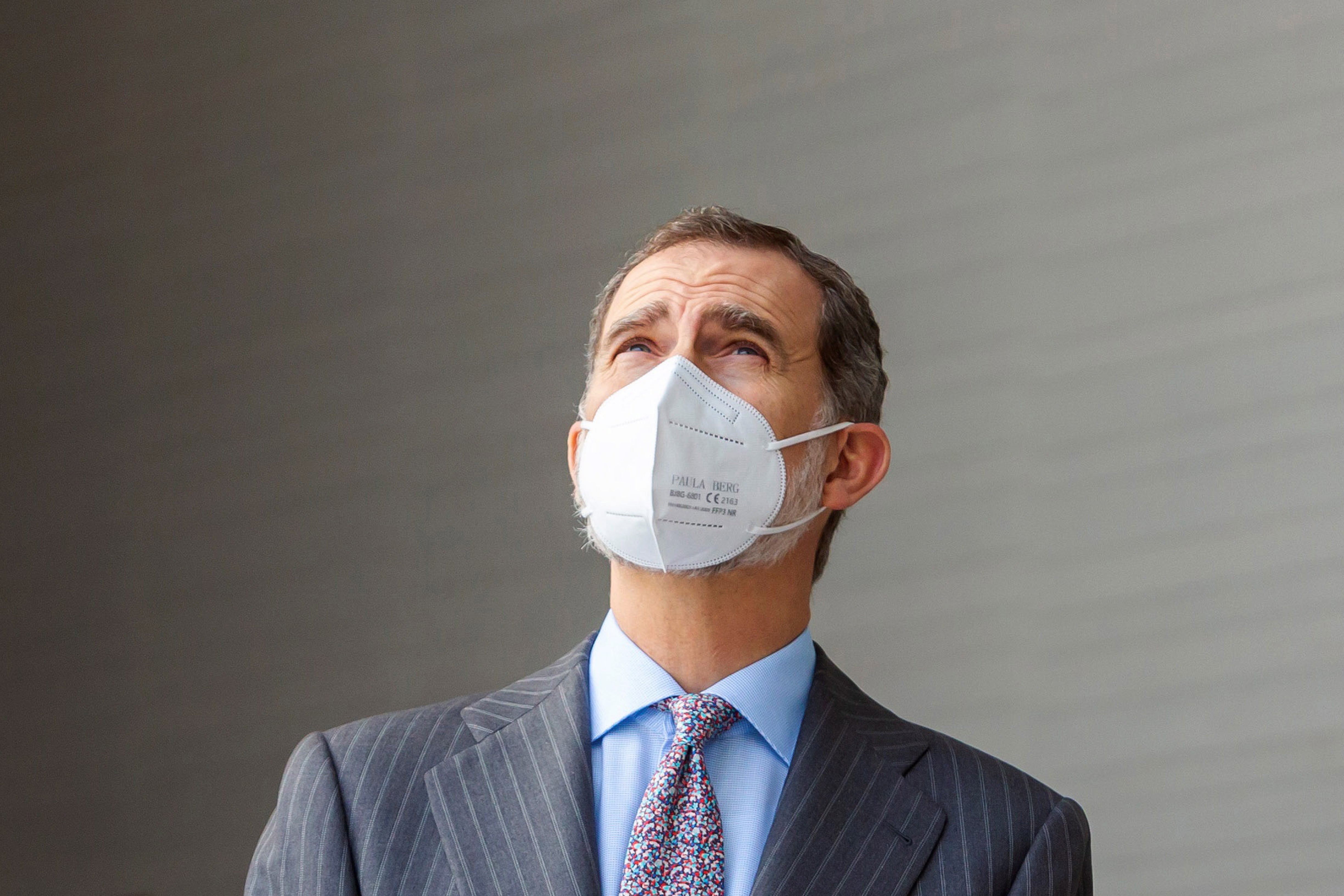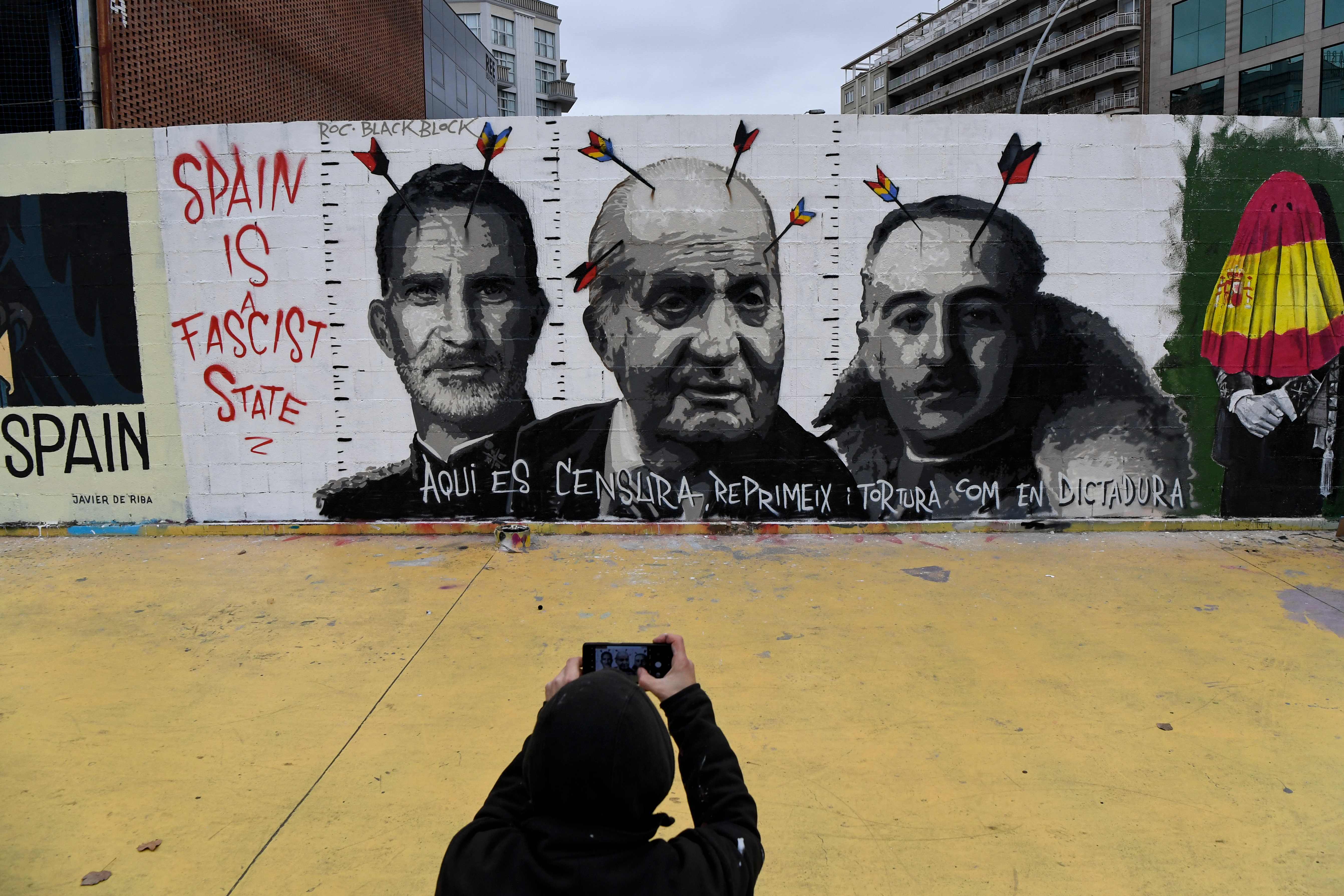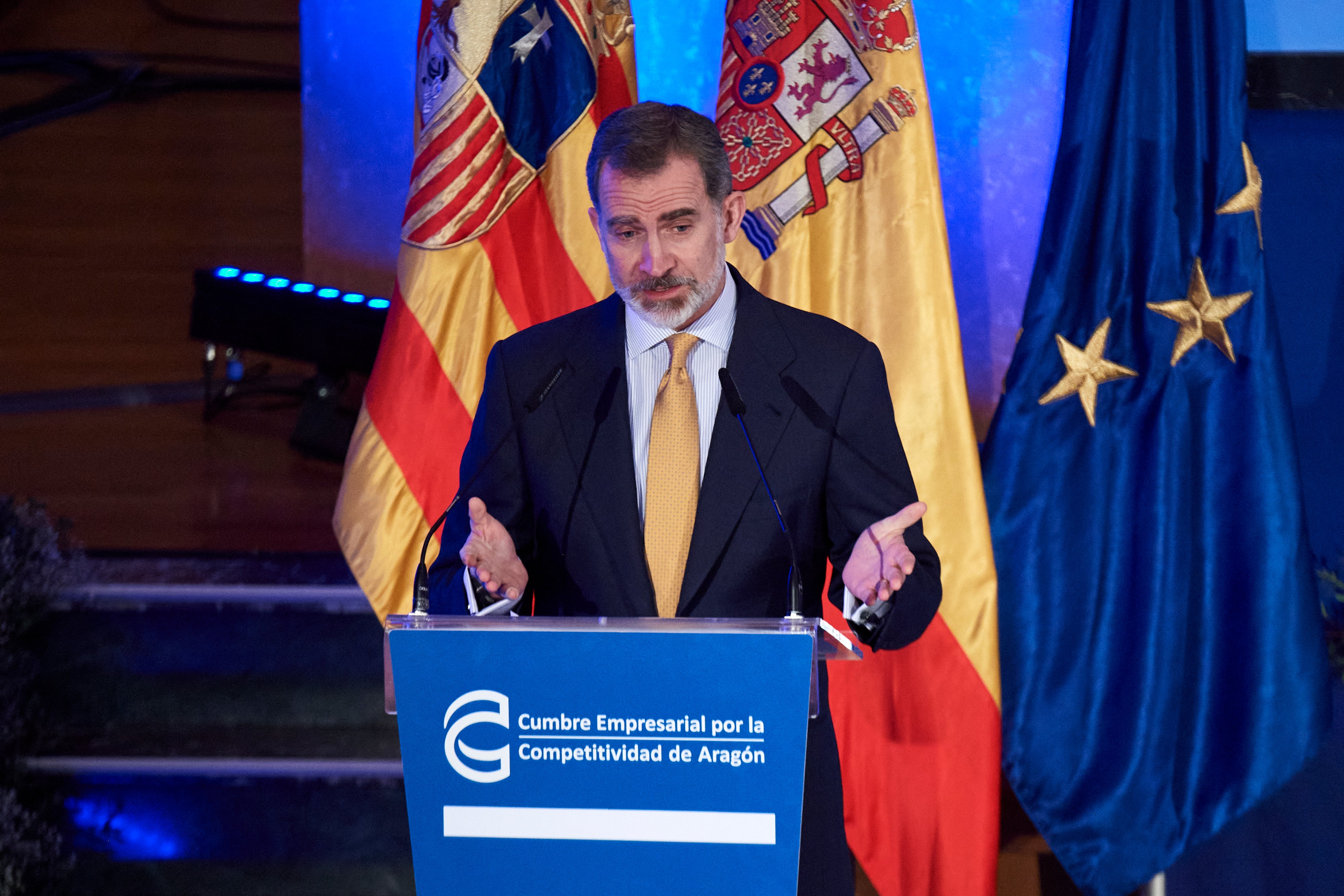Like father, not like son: Spain’s King Felipe tries to overcome Juan Carlos scandals
Despite question marks over the future of Spain’s monarchy, King Felipe VI appears to be winning over some critics, reports Graham Keeley in Madrid


It has been another week of scandal for Spain’s disgraced former king Juan Carlos.
He paid the country’s tax authority €4.4m (£ 3.8m), in what was widely seen as an attempt to clear his way to return home from his exile in Abu Dhabi.
And the former ruler’s lawyers also submitted a voluntary declaration regarding flights worth €8m from a private jet company that were paid for between 2009 and 2018 by a distant cousin, and which were seen as taxable benefits in kind in Spain.
Juan Carlos made a series of journeys in private jets with his ex-mistress Corinna zu Sayn-Wittgenstein to the United States, the Middle East and the Caribbean. He also paid €680,000 in tax in December in an apparent attempt to avoid prosecution.
Yet while the 83-year-old’s problems have tarnished forever his own reputation, his successor son, King Felipe VI, appears to be winning over critics even in a country where the future of the monarchy is far from guaranteed.
This week, Spain’s socialist prime minister, Pedro Sanchez, took the opportunity to contrast the reign of King Felipe to that of the monarch’s frivolous father.
Mr Sanchez said on Friday that King Felipe had been “a turning point in favour of exemplarity, transparency and proper use of public resources. The current king has all my support.”
The scandals which have embroiled Juan Carlos have emboldened those who want the monarchy abolished and deepened divisions within Spain’s left-wing coalition.
Before Juan Carlos suddenly left the country in August, Spaniards were treated to a daily drip-feed of front pages with fresh allegations of financial – or personal – impropriety.
Readers were amused and appalled in equal measures by tales of the former king carrying suitcases stuffed full of cash back to the palace in Madrid or how gave his ex-lover €65m.
As Spain struggled with the economic devastation caused by the Covid-19 pandemic, the antics of a playboy royal pushed support for republicanism to levels unseen since before Juan Carlos’ abdication in 2014.
A poll in July for El Español, an online newspaper, found 49.3 per cent backed a republic, while 48.9 per cent supported the monarchy and 1.8 per cent did not have an opinion.

After an agonising few weeks for Spain’s left-wing government and the royal household, Juan Carlos quit the country in dramatic fashion, keeping his former subjects guessing as to his whereabouts for two weeks.
Rid of the embarrassment of his father, King Felipe’s standing improved.
Another poll in August for the same newspaper found that support for the royal family rose to 59 per cent, while only 40.8 per cent backed a republic and 4.8 did not know.
“Felipe is a constitutional monarch who has always wanted to distance himself from his father and his financial affairs,” says José Antonio Zarzalejos, a journalist and author of Felipe VI: A King In Adversity.
“He has shown that despite everything that has happened with his father it has not damaged support for the monarchy or him; in fact it has made him more popular because he has acted with honour.”
When he succeeded to the throne, King Felipe immediately sought to reform the House of Borbón, stripping down the royal family to immediate relatives, banning any business dealings and insisting on transparency.
Last March, when the Daily Telegraph revealed that Juan Carlos and his son were named as beneficiaries of a Panama-based fund started in 2008 with a $100m (£71.7 m) donation from the Saudi royal family, King Felipe released a statement renouncing any financial inheritance from his father. Juan Carlos was also stripped of his royal allowance.
Despite the swift action, it prompted accusations the king knew about his father’s financial dealings all along.
Last June, Spain’s Supreme Court prosecutor opened an investigation into Juan Carlos’s involvement in a high-speed rail contract in Saudi Arabia that was granted to a group of Spanish companies in 2011.
This was followed by an investigation into alleged undeclared expenses, and a third into a trust which Spain’s prosecutors claimed was registered in Jersey.
Attempts to transfer funds from an active account in the tax haven were detected by Spain’s anti-money laundering authority last year. Intelligence on the account, with a reported balance of nearly €10m, was promptly passed on to Spanish prosecutors.
As the legal problems worsened for the former king, support appeared to surge for King Felipe.
Last month, 57 per cent of Spaniards said they backed the monarchy compared to 37 per cent who opposed the institution, according to a survey forEl Mundo newspaper.
However, another poll in October by a consortium of left-wing newspapers found a majority favoured a republic instead of a monarchy.
“There have been a series of polls by sympathetic right-wing papers but this one is a true reflection of how the people feel,” says Jose Manuel García, of the group Encuentro Estatal por la Republica.
One factor which seems to play in King Felipe’s favour is his daughter Princess Leonor, the future queen, who has made a series of public speeches despite her young age.
The 15-year-old is to study from this autumn in Wales at the private UWC Atlantic College, which charges £67,000 for a two-year course.
Nicknamed “Hogwarts for hippies” because of its liberal regime, its previous pupils include Crown Princess Elisabeth of Belgium, King Willem-Alexander of the Netherlands and Princess Raiyah of Jordan.

However, it has up to 60 per cent of pupils from poorer backgrounds who receive grants and the decision of the royals to send their daughter to study abroad has been seen as evidence they have a modern attitude to parenting.
Pilar Eyre, a journalist and royal author, believes that King Felipe has survived being tarnished by his father’s scandals but should not believe the monarchy is untouchable.
“What the politicians say to look after the royals is one thing but what the people think is another,” she told The Independent.
“Felipe is on a knife edge. If more revelations come out about Juan Carlos, the damage could be irreparable.”



Join our commenting forum
Join thought-provoking conversations, follow other Independent readers and see their replies
Comments